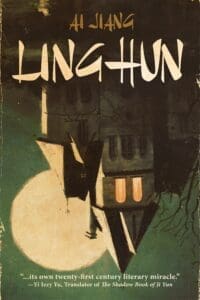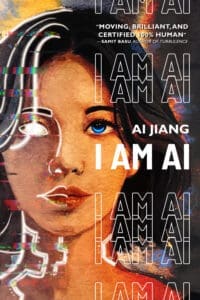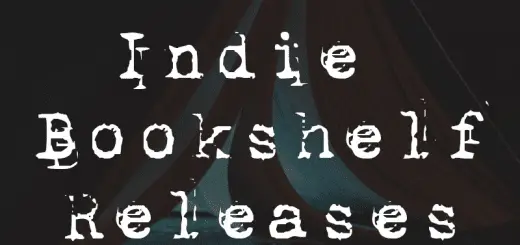WiHM 2023: Ai Jiang talks about being a Nebula Finalist
Ai Jiang talks about being a Nebula Finalist
By Angelique Fawns
Ai Jiang’s short story “Give Me English” was announced as a Nebula Finalist this March. Her speculative short was published in the 5-6/22 issue of The Magazine of Fantasy and Science Fiction. Jiang is one of six authors in the running for this prestigious award. This Canadian-Chinese writer has been taking the industry by storm with her work appearing in Uncanny, The Dark Magazine, Pseudopod, The Deadlands, and Dark Matter to name a few. Dark Matter magazine says, “Jiang is widely considered to be one of the most exciting young voices in science fiction, fantasy and horror.”
Jiang mixes the literary with speculative elements and I touched base with her to learn more about her amazing achievement.
AF: Tell me about the conception and creation of “Give Me English.”
AI: I’ve been thinking a lot about further developing the concept, theme, and world of “Give Me English” in a novel, but the initial concept and creation of the story was inspired by the idea of language as currency in the sense that it’s difficult to accomplish anything without language, whether it might be known languages, jargons specific to particular places or workplaces or communities, unspoken languages, body language, among other forms of communication. We require language to form connections, bonds, and develop relationships; we require language in the workplace; we require language in the passing down of culture, history, and stories. But what is most interesting to me is how language is connected to culture, along with how it influences and if influenced by power dynamics within our society. Those who have more power, more wealth, have more say, have a greater outlet for their voices to be heard, whereas those lacking in both of what I mentioned are disadvantageous in how much influence their words have on others and it weight in society as a whole. But language is also something that is closely connected to our cultures in the sense that some words might exist in one language but not another; there might be greater weight placed on specific words depending on the culture and their language as well, though this is something I will explore further in the novel for “Give Me English”, it’s something I also touch on in the short story, in particular, the ending.
AF: How did you find out you were a nominee, and then a finalist? What was your reaction?
AI: Ah, it seems that for the Nebulas a nominee and finalist are the same thing since there isn’t a long list or preliminary list like the other awards before the narrowing down of a short/final list! I’d actually found out the day after nomination voting closed for the Nebula Awards after receiving an email from the SFWA VP John Murphy with the subject line “Quick call on SFWA business”. At first, I thought I was in trouble. For what? I wasn’t quite sure. But whenever something includes the word “business” and if someone is asking for a “call”, I somehow immediately think I’ve done something wrong. I guess I watch too many movies. At the time, I was over at my parents’ house having dinner, so I quickly went outside for the call, and I made the mistake of not bringing a jacket. There was a lot of screaming and a lot of laughing, and I can imagine you can infer who was doing what, and my family heard the whole thing through the front door. And of course, my parents often give quite backhanded compliments (though they mean well), and so when I told them, my mother said, “Oh, I guess you do have just a little bit of talent for writing after all.”
AF: Why do you think “Give Me English” out of all your stories was selected?
AI: Out of all my short stories, I’d say “Give Me English” came to me most naturally of all in terms of the concept, themes, world building, along with the characters—who they are, what they desire, their relationship to one another, and how they fit into the world as a whole. And though the society is different than ours in the sense of their use of language as currency, at its core, we share with it far greater similarities than we might like to admit.
AF: How do you continually push the boundaries of your writing?
AI: I think something that is both a pitfall and advantage of my writing is that I often have many different ideas and themes I’d like to explore in a single story. It doesn’t always work, but when it does, it creates such a fascinating world and living characters that I find not only I find resonance with, but other readers do as well. Lately, I’ve been very interested in using different perspectives in storytelling, particularly those that are unconventional or lesser used—second person, first person plural, first person with second person address, or even without a specific perspective. Genre mixing is definitely a favourite of mine as well. Tropes in genre might breathe new air into another that does not traditionally use them, and common elements in one genre might be jarring and innovative in another.
 AF: You have your first novel Lingh Hun is launching next month. Tell us about its pre-launch reception and your plans for marketing.
AF: You have your first novel Lingh Hun is launching next month. Tell us about its pre-launch reception and your plans for marketing.
AI: I’m overjoyed by the overwhelming positive and touching reception for Linghun so far, and I hope it is something that persists long after its official launch as well. I have two in-person launches planned so far—one with Little Ghosts Books here in Toronto, and another with Space Cowboy Books online for those who are not local. In terms of marketing, my publisher has been promoting Linghun on their end and helping me seek out the amazing narrator Nancy Wu for the audiobook, along with working out the details for the limited-edition hardback for Linghun that will be forthcoming. I’ve been contacting a lot of reviewers in hopes that the early reviews might help Linghun gain more visibility when release day comes and creating promotional graphics that will go with the blurbs many fellow writers I admire have graciously provided. TikTok is still a work in progress, but perhaps I’ll get over the fear of recording myself one day—and hopefully one day soon. Outside of that, I’m not very marketing savvy I must say, so I make do with what I can, and hopefully the cumulation will help Linghun reach a wider audience.
 AF: You also have another novel “I Am AI” due for release this summer, tell us about that.
AF: You also have another novel “I Am AI” due for release this summer, tell us about that.
AI: I AM AI is actually not a novel but a very short novelette at about ~12,500 words! It’s a fun project I’ve been meaning to bring to life and had finally done so. I would say it’s both an exploration and reflection on toxic productivity and the rise of A.I. With workplace expectations for many to work longer hours with reduced vacation times, become more efficient workers, limit errors, among other pressures, it’s difficult for us humans to keep us with rapidly developing technology, especially with the threat of it replacing human workers in many sectors. A.I. I would say is still far from being able to capture what makes us truly unique as humans, but even so, the fear persists. So I suppose this novelette is my offering to those who are under these same pressures, to those who feel as though they are not enough or working hard enough, to tell them not to fear our own humanity.
AF: Give us a peek into a day in the life of Ai Jiang. What is your routine?
AI: There is no such thing. The routine, I mean. It is never-ending turbulence over here I’d say. Just as my waking time ranges from 8AM to 3PM, my sleeping schedule also ranges from 12AM to 9AM. I find myself often doing writing-related tasks these days more than actual fiction writing, and I’m still trying to figure out how to balance. And for those who have been following my writing journey for quite some time, I think the most common statement that might come from them is: “Oh, she never sleeps.”
AF: Where do you get your story ideas?
AI: I find that often what we are most passionate about is what makes the best stories, so I’ll leave it at that.
AF: Finally, what is next for Ai Jiang?
AI: Everything! I hope. Meaning that I have a few projects planned so far, and I’m hoping that I’ll complete them in the new few years if I don’t get sidetracked. But so far, the general genres of my planned projects include solarpunk, cyberpunk, biopunk, epic mythological fantasy, body horror, and something Spirited Away and Big Fish & Begonia inspired.
- About the Author
- Latest Posts
Angelique Fawns writes horror, fantasy, kids short stories, and freelance journalism. Her day job is producing promos and after hours she takes care of her farm full of goats, horses, chickens, and her family. She has no idea how she finds time to write. She currently has stories in Ellery Queen, DreamForge Anvil, and Third Flatiron’s Gotta Wear Eclipse Glasses. You can follow her work and get writing tips and submission hints at http://fawns.ca/.












